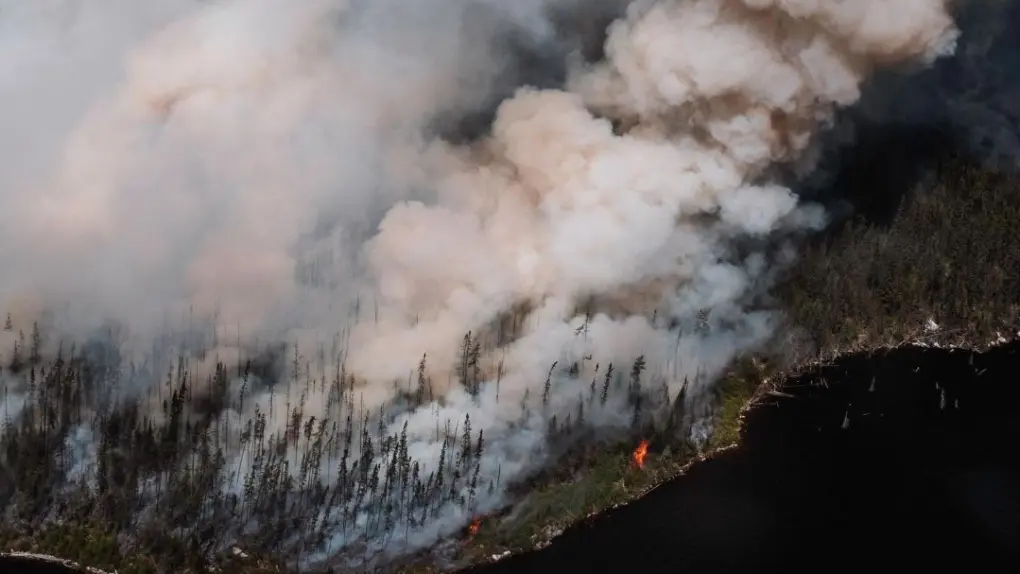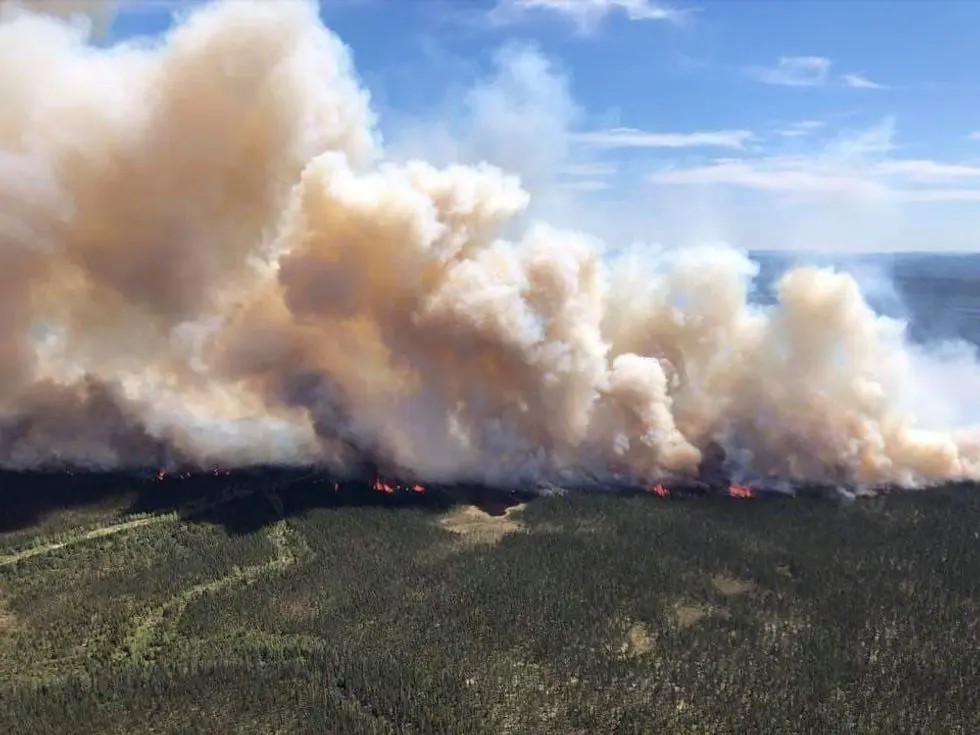As California grapples with the devastating wildfires that have forced thousands to evacuate their homes, one striking incident has captured public attention. Actor Dennis Quaid, amid the frantic activity of packing his belongings, became the subject of an unexpected television interview. Fans across social media platforms have voiced their outrage at the reporter’s timing, prompting a deeper conversation about media ethics during crises. This incident revealed not just the struggles faced by individuals during emergencies, but also the sometimes intrusive nature of media coverage.
Quaid, known for his extensive film career, found himself interacting with NBC Los Angeles reporter Robert Kovacik while escaping from the escalating Palisades Fire threatening his Brentwood home. Viewers were left aghast as they witnessed the awkward interview unfold, with many criticizing it as an invasion of privacy at a particularly vulnerable moment.
Media Ethics During Emergencies
The unexpected interview of Dennis Quaid serves as a critical case study on media ethics. In times of emergencies like wildfires, when human distress is palpable, ethical considerations should take precedence over sensationalism. What drives people to interrupt someone’s attempt to secure their safety for the sake of a story? This incident raises profound questions regarding the line between news reporting and exploitation.
Historically, media ethics advocates have urged journalists to prioritize sensitivity and compassion for individuals in crisis. The abrupt questioning of Quaid, who was clearly under stress as he gathered belongings and prepared to evacuate, contradicts these standards. It indicates a failure to recognize the basic human need for privacy and respect during tumultuous times, leading to a backlash from viewers who found the reporter’s approach distressing.
Public Reaction: Outrage and Support for Quaid
The public reaction to the incident was swift and intense. Many fans took to social media, expressing their disbelief that a reporter would interrupt someone’s evacuation process to conduct an interview. Comments flooded platforms with phrases like ‘unprofessional’ and ‘irresponsible’ aimed at Kovacik’s actions. One user remarked, “Not them interviewing Dennis Quaid while he frantically tries to pack his belongings to evacuate 😭.” Such sentiments were echoed by countless others, emphasizing the disconnect between news and the sanctity of personal crisis.
Nonetheless, Quaid’s demeanor during the interview was praised. Despite the absurdity of the situation, he maintained his composure and even took the opportunity to inform the public about safety measures, such as turning off their gas before evacuating. Many recognized this as a sign of his character, attributing newfound respect and admiration for the actor amidst this chaos.
While the interview was criticized, it also led many to rally behind Quaid, with fans creating threads applauding him for his calmness and care for his neighbors during such an unsettling time.

The Landscape of LA Wildfires
To fully understand the weight of the situation, it’s essential to grasp the broader context of the wildfires ravaging California, particularly the ongoing Palisades Fire. Initiated just days prior, this fire has rapidly worsened, with thousands of acres scorched and many homes lost. This devastating event forced the evacuation of numerous neighborhoods. The fire, as of the latest updates, has consumed over 20,000 acres and is only 11 percent contained.
Situations like these highlight the urgency and fear that families experience while facing the unknown. The threat of losing one’s home or loved ones enhances the stress of packing up, often in a matter of moments. Quaid’s incident solidifies the reality of the scenario where media presence can magnify those stresses further.
Celebrity Encounters and Their Consequences
The intersection of celebrity culture and the media can lead to peculiar outcomes, especially during crises. When a public figure faces a disaster, it typically draws heightened attention—both from the media and the public. In this case, Dennis Quaid, an established actor known for his versatility in roles, became an inadvertent focal point amidst a significant crisis.
There is an inherent risk in placing celebrities under a media spotlight during their most vulnerable moments. Their experiences can amplify casual viewers’ empathy or scorn towards public actions, potentially overshadowing critical issues like the environmental disasters at hand. Quaid’s calm and collected response throughout the harrowing experience demonstrated resilience, yet it also bore weight on his public persona, reflecting the unpredictable consequences of being a public figure during crises.
Moreover, when such incidents arise, communities often come together to support those affected. Acts of kindness, donations, and messages of solidarity flood in from fans across the globe. Stories of celebrities stepping up during crises can act as beacons of hope and reminders of community strength, often reshaping public perceptions.
The Role of Social Media in Crisis Reporting
Social media platforms have transformed how news is disseminated, especially during crises. In the wake of the incident involving Dennis Quaid, platforms like X (formerly Twitter) became a battleground for opinions about proper media conduct. The immediacy of social media allows audiences to voice concerns and discontent on real-time platforms, granting them a venue to control narratives that may often drift beyond their grasp.
This transition to social media underscores the growing role these platforms play in shaping public opinion. With hashtags and threads gaining traction, users successfully shed light on the live reactions to various media events, influencing how further media coverage may unfold. In the case of Quaid, the palpable outrage expressed on social media could urge networks to reevaluate their reporting approaches during similar scenarios in the future.
Conversely, social media can be a double-edged sword, as misinformation can spiral out of control. The balance between sharing genuine news and sensationalism is often precarious. When celebrities like Dennis Quaid are involved, the stakes rise exponentially, leading to situations where a simple interview can spark widespread debate regarding media ethics.
The Future of Media Coverage
As we evaluate the implications of the Dennis Quaid interview, a pivotal conversation surrounding the responsibility of media networks arises. How can networks improve their interview strategies and respect the personal privacy of those affected by disasters? Moreover, what steps can be taken to ensure that such interviews do not exploit individuals under duress for baiting viewership?
To cultivate a sense of ethical integrity, media organizations should develop guidelines for interviewing during crises. Suggestions could include complete pauses on live interviews from affected individuals or at least waiting for them to reach safety before conducting on-camera discussions.
In retrospect, Dennis Quaid’s experience acts as a stark reminder of the discomfort stemming from the media’s quest for interviews during emergencies. It emphasizes a need for introspection among journalists to ensure they deliver responsible, ethical reporting, prioritizing empathy and the well-being of individuals over ratings.
Personal Stories Amid the Chaos
Every wildfire brings unique stories of struggle and resilience. Dennis Quaid’s experience is but one narrative among thousands affected by the fires in California. Various stories paint vivid pictures of the toll these situations exert, not just physically but psychologically as well.
For example, consider a family hurriedly packing in the fading light of day, unsure of their future. They have memories filled with laughter, childhood photographs, and the love they shared within their walls. The emotional strain of packing one’s entire life into mere bags and deciding what to take and leave behind is heart-wrenching.
As fires devour their homes, these families often reflect on their choices, channeling their energies towards safety while longing for what they could lose. Such memories underscore the personal losses felt by all who evacuate, turning an interview moment into a backdrop of real-life tumult.

Narratives of Hope
Within the chaos, stories of hope also emerge. Neighbors come together, offering help, food, and shelter to one another in distress. These acts of kindness serve as reminders of humanity’s resilience and capability to unite in times of adversity.
As Dennis Quaid reflected during his interview, every lapse in reality can teach us valuable lessons. Through community, empathy, and shared determination, individuals band together to navigate hardship, allowing them to confront life’s unpredictable waves. Community toolkits emerge—containing resources for emotional support, contacting each other, and rebuilding efforts—promoting recovery.
As discussions around adequate media practice continue, it’s crucial to hold onto these stories of hope, reminding the public that while crises may bring darkness, they can also illuminate the best of humanity.
The Aftermath: Rebuilding Lives and Communities
In the aftermath of the wildfires, rebuilding lives becomes a momentous task. The devastation is often unmeasured—homes lost, families displaced, and emotional scars lingering. As seen during the Palisades Fire, communities rally together to support one another in the arduous journey toward rebuilding.
Community centers become hubs for relief efforts, offering resources, information, and emotional support to those affected. Fundraising activities emerge, and residents contribute whatever they can—whether time or financial support—to help their neighbors navigate these challenging transitions. Stories surface illustrating how these acts of kindness play a pivotal role in recovery.
Long-Term Impacts and Lessons Learned
As communities heal, resilient threads begin to weave through the fabric of loss. Each individual’s experience contributes a crucial lesson on preparedness and community spirit. Individuals may start conversations on fire safety and preparedness, spurring local initiatives to fortify homes and create robust emergency plans.
Moreover, wildfires dramatize the urgency of addressing climate change and environmental sustainability. The reality of these disasters is ever-growing, emphasizing the importance of communal vigilance against environmental threats. This dialogue encourages action—not just in reducing vulnerability during crises, but cultivating a skilled, informed society capable of facing such calamities head-on.
Reflections on Dennis Quaid’s Character
Amidst the turmoil, Dennis Quaid has emerged as nothing short of commendable. His gentle demeanor during a stressful evacuation illustrates resilience not only in facing potential loss but also in projecting kindness. The lessons learned during his moment in the spotlight reflect a critical understanding of empathy, responsibility, and community.
As society moves forward, reflections on celebrities can guide how we shape narratives surrounding crises. Quaid’s response reveals a potential avenue for ongoing discourse on the importance of integrity in media, respect for individuals amid crises, and the need for public figures to act as durable support systems during tumultuous times.
The Bigger Picture
Ultimately, the incident involving Dennis Quaid is merely a piece of a larger narrative of media ethics and community support during crises. As fire-ravaged landscapes remind us of nature’s unpredictable force, they also awaken discussions on how we treat individuals navigating their most vulnerable moments.
In an ever-challenging world, it becomes paramount to grasp that humanity transcends media spectacles. Individuals like Quaid serve as reminders that compassion should reign supreme, no matter the context. Through reflection and dialogue, perhaps the values of kindness, integrity, and resilience can take center stage, guiding future media reporting and societal reaction during emergencies.
Hi, I’m Sarah, a 30-year-old journalist with a passion for storytelling and uncovering the truth. I strive to bring important issues to light and connect with my audience through compelling narratives.



